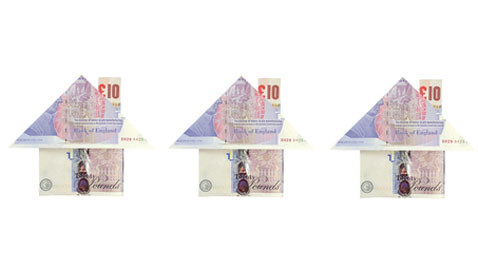
Total net household wealth in the UK has exceeded the £7 trillion mark for the first time, according to latest research from Lloyds TSB Private Banking.
Total household wealth for the end of 2012 is now estimated at £7.05 trillion, while there has been an increase of £2.71 trillion over the past decade; equivalent to a rise of £86,000 per household.
The value of household wealth has grown at a faster rate (62%) than either gross household disposable incomes (44%) or the consumer price index (29%) since 2002.
Housing wealth (the value of housing less the amount of mortgages outstanding) has fallen in importance relative to financial wealth in recent years. Housing now accounts for 41% of total wealth compared with the recent peak of 45% in 2004. Conversely, the proportion accounted for by financial assets has risen from 55% to 59% between 2004 and 2012. These changes are partly due to changes in household portfolios and partly to differing asset price performances.
Total financial assets increased in value from £2.45 trillion in 2002 to £4.14 trillion a decade later, contributing £1.7 trillion (63%) to the overall increase in total household wealth during the decade. Financial assets include bank and building society deposits, government bonds, shares in listed companies, life assurance and pensions.
53% of financial assets are tied up in life assurance and pensions funds (LAPF), and a further 24% is in the form of deposits held with financial institutions and National Savings. Both have increased by 80% over the past decade; deposits grew by £476 billion and LAPF by £1 trillion.
In spite of the subdued economic climate, households have also benefitted from stock market growth during the same period, with investments in equities rising by over £35 billion (or 21%).
Despite the housing market downturn since 2007, housing wealth has grown by £1 trillion (54%) in the past decade as the value of property has risen (+£1,604 billion) by more than the increase in mortgage debt (+£591 billion).
Substantial growth in house prices in the period up to summer 2007 and an increase in the number of privately owned homes has seen the value of the UK’s private housing stock increase to £4.2 trillion in 2012 from £2.6 trillion in 2002. While, in the past decade, the value of mortgage debt has almost doubled from £675 billion to £1.3 trillion – an increase of 87%. Average annual growth in mortgage debt has, however, slowed to just 1% since 2008, compared to 12% per year between 2002 and 2007.
Since 2007 household wealth has grown by £478 billion (7%); driven mostly by a £462 billion (13%) increase in financial assets. Not surprisingly, given the decline in the residential property market, housing wealth has risen by a modest 1% over the period.
Average wealth, including property, stands at £255,502 per household. According to the latest ONS Wealth and Assets Survey 2008/10, there is a substantial divide between the wealthiest and the less wealthy. The wealthiest 10% of households have an estimated average wealth per household of £1.82 million, which is 22 times more than the average wealth per household for the bottom 50% of £82,000.
Nitesh Patel, economist at Lloyds TSB Private Banking, said: “Household wealth has gone past £7 trillion for the first time; growing by over an estimated £2.7 trillion in the past decade. Most of this increase came during the ‘boom’ years prior to 2007 when the economy grew rapidly, with rising employment and incomes.
“While wealth has soared in the past decade, there is a large divide in where it has accumulated. The wealthiest 10% of households hold 22 times more wealth, on average, than those in the bottom half. This is a substantial gap, although many of the wealthiest are older individuals who have had a much longer time to accumulate their wealth holdings, as well as to reduce their debts.”